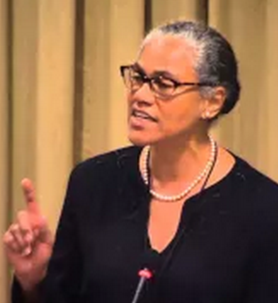
Jacqueline C. Rivers
Seymour Institute
Jacqueline C. Rivers is a Doctoral Fellow in the Multidisciplinary Program in Inequality and Social Policy of the J. F. Kennedy School of Government at Harvard Kennedy School, and is a Graduate Research Fellow of the National Science Foundation. She is also the Executive Director of the Seymour Institute on Black Church and Policy Studies, which seeks to create and promote a philosophical, political and theological framework for a pro-poor, pro-life, pro-family movement within the ecumenical Black Church both domestically and internationally. The key initiative of the Seymour Institute is the Program on Bioethics, Human Life and Marriage which will assert and defend the right of the church to pursue the practice of biblical faith and promote in society the sanctity of human life and the correct understanding of marriage as a conjugal partnership of husband and wife. She is the former Executive Director of MathPower, an education consulting organization she founded and which became an influential voice in mathematics education reform for low income, minority students in the Boston Public Schools. She has worked on issues of social justice and Christian activism in the black community for more than thirty years, committing her personal and professional life in service to the inner city youth of Boston. She has presented papers at the Annual Meeting of the American Sociological Association and has been featured in or provided commentary for publications such as the Boston Herald and the Boston Globe, Sojourners magazine, and WBUR/National Public Radio. She has lectured at a number of universities, including Harvard and the University of Pennsylvania. She has co-authored numerous essays, including An Open Letter to the U.S. Black Religious, Intellectual, and Political Leadership Regarding AIDS and the Sexual Holocaust in Africa (1999), and A Pastoral Letter to President George W. Bush on Bridging our Racial Divide (2001). She has a forthcoming essay with Orlando Patterson on a study of attitudes towards cultural change in preparation for the job market among the hard-to-employ, especially those who are low-income African Americans.
About